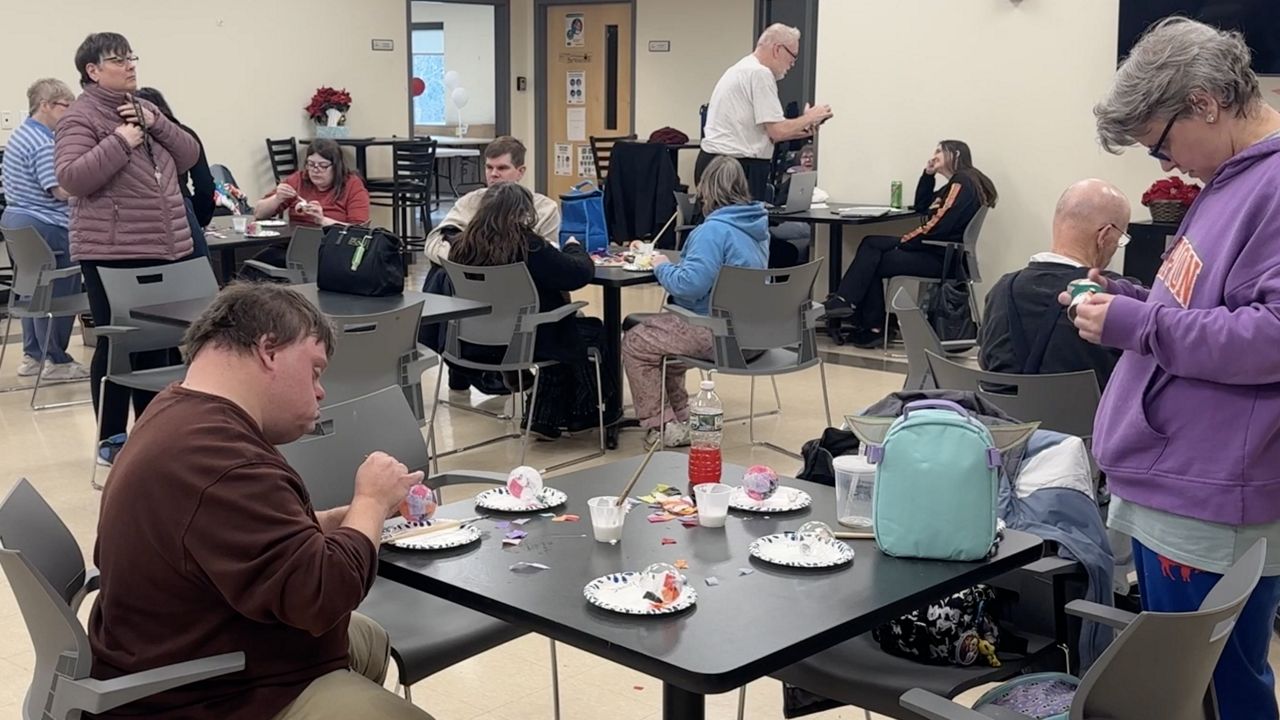It’s been roughly five years since New York began phasing out sheltered workshops across the state following a U.S. Supreme Court ruling that found the programs to be discriminatory.
That led some organizations in the state to adapt to meet the needs of those that they serve.
ACHIEVE, a program that serves individuals with disabilities in the Southern Tier, adjusted to start an adult day program to keep them engaged.
Now, for the men and women in the Southern Tier, something as simple as making ornaments with their closest friends at ACHIEVE is the best part of their week.
“I paint, I help decorate the tree," said Dan Melita, an ACHIEVE member.
“I just love it here because of the holidays," said Eric Farrell, an ACHIEVE member.
For the past 70 years, ACHIEVE has served individuals with intellectual, developmental and other disabilities.
But staff at ACHIEVE said their role has become more important than ever in recent years. When New York phased out sheltered workshops, which offered adults with special needs a place to earn a paycheck outside of a mainstream business, they noticed a concern among those they serve.
"A lot of the individuals did panic. They were going to lose their social time with their friends," said Gina Arici, a program manager of ACHIEVE.
The move to end sheltered workshops followed a Supreme Court ruling that said keeping people with disabilities in separate work settings constitutes discrimination. It’s estimated that over 8,000 New Yorkers in the state’s 113 workshops were expected to move into community jobs.
But clients and advocates said there was still a need to come together in a common space gives them a sense of belonging and a place to feel safe.
“Every time I come, it’s like a second place here," said Farrell.
"The individuals here choose their day. We don't tell them where to go. They choose. There's a board that has everything on for the day and they get to choose whatever they want to do or not do,” said Arici.
The group still partners with local employers to help their members integrate into the community.



